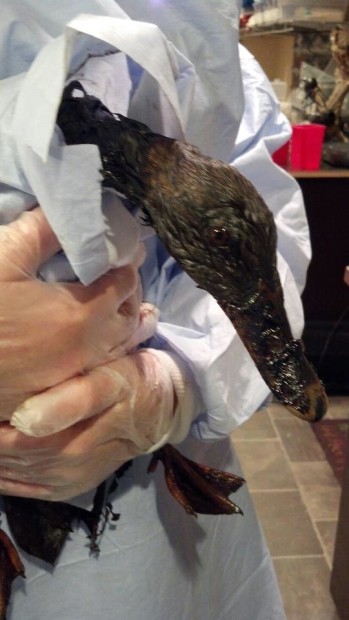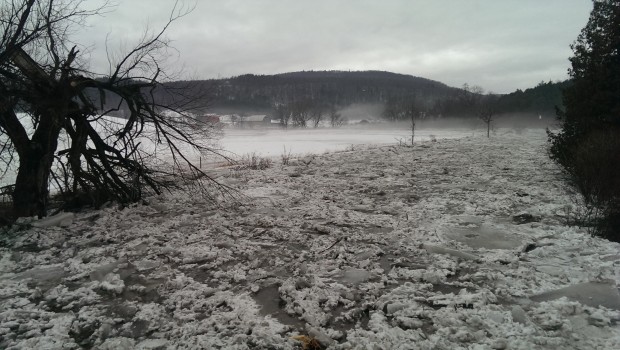We have much more to do and your continued support is needed now more than ever.
A Year After Mayflower Disaster, an Oil Spill at Every Turn
A year ago, residents of a quiet suburban neighborhood in Mayflower, Arkansas, watched in horror as heavy, toxic tar sands oil poured out of a burst pipeline, across their yards and into their street, covering everything in black muck and releasing noxious gases.

Too bad we don’t have time for that. As a nation, we have been busy dealing with four oil spills in different states in just the past two weeks.
No matter the location of an oil spill, wildlife are killed or injured, people are exposed to chemicals and pushed from their homes, and water becomes too polluted for drinking or recreation. It takes months and years, even decades, to clean up.
And there is no time to dwell on the implications afterward – because by the time the birds are cleaned up, the cameras turned off, and people returned to their homes, it has happened again elsewhere. And the rest of us? Between news of the latest spill in one river or another, anniversaries of huge disasters like Exxon Valdez and Deepwater Horizon, there are so many that we can’t even keep them straight.
It Could Happen in Vermont
One year after the Mayflower disaster, 25 years after Exxon Valdez, we still face another oil spill at every turn. That fact should prompt us to consider the aging pipeline that runs right through our backyard, cutting through the Northeast Kingdom between New Hampshire and Maine. The Exxon-owned company that operates the pipeline is clinging to the possibility of using it to transport toxic tar sands oil from Montreal to Portland. As the company releases carefully worded statements about safety in hopes of allaying any concerns over a project involving its half-century-old equipment, they beg us to ignore the most important and indisputable fact of all: Pipelines spill.
Pipelines spill in Texas. Pipelines spill in Michigan. Pipelines spill in Arkansas, they spill in Ohio. And, yes, they spill in Vermont. The biggest recorded spill from the Portland-Montreal pipeline in Vermont was years ago. Many have forgotten the day that people stood on the bridge in Coventry and peered down at oil coating the icy Black River, and watched as cleanup crews threw flaming kerosene-soaked hay bales in to try to burn off the oil. But it did happen. A spill today of the conventional crude currently being transported through the pipeline would be bad for communities from Jay to Sutton to Victory; if the pipeline carried tar sands crude instead, an incident could be devastating.

Speak Out Against Oil Spills
![]() Speak up for birds, moose and other wildlife, and tell the State Department to reject the Northeast tar sands pipeline.
Speak up for birds, moose and other wildlife, and tell the State Department to reject the Northeast tar sands pipeline.





















